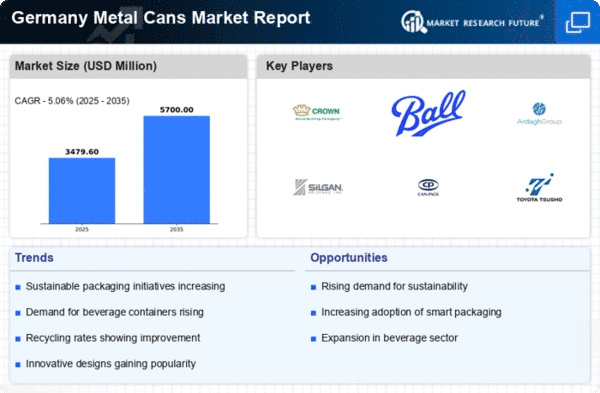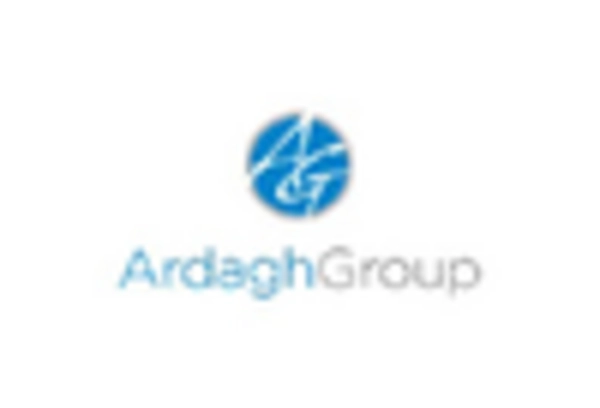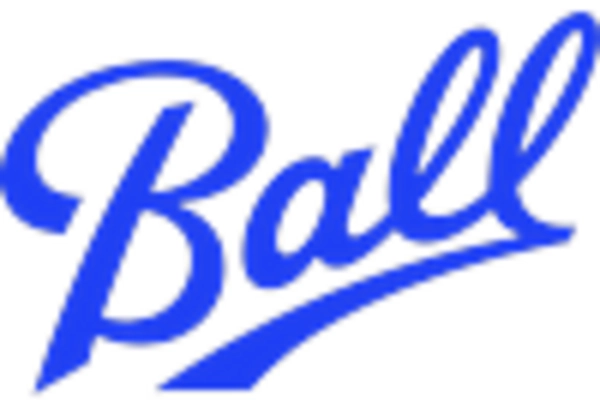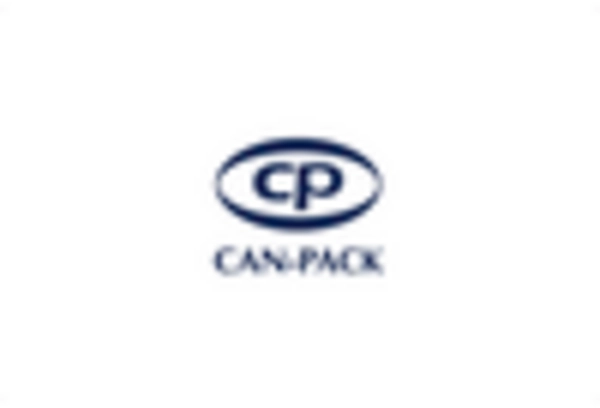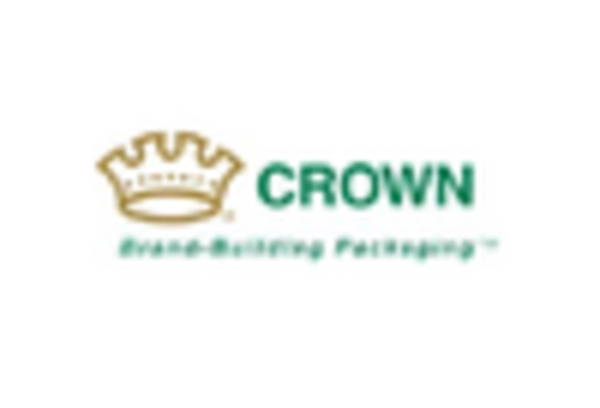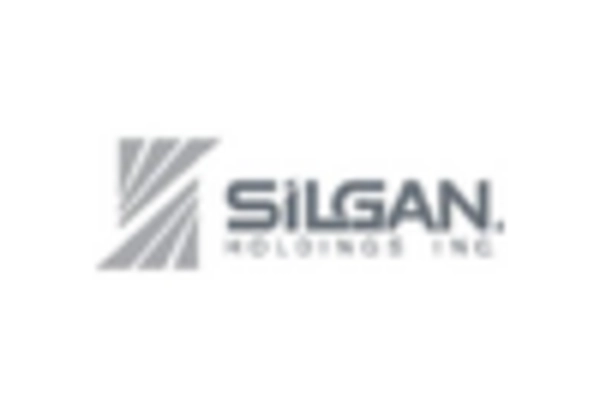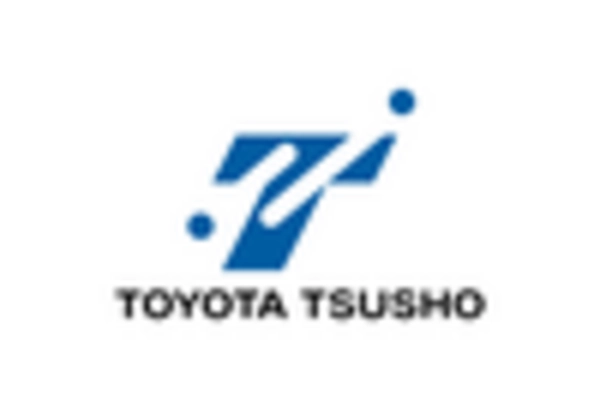Growth of the Food Packaging Sector
The food packaging sector in Germany is experiencing robust growth, which positively impacts the metal cans market. With an increasing focus on food safety and preservation, metal cans are favored for their ability to provide airtight seals and extend shelf life. In 2025, the food packaging segment is projected to represent around 30% of the total metal cans market. This growth is driven by the rising demand for canned foods, including vegetables, fruits, and ready-to-eat meals, as consumers seek convenient and long-lasting options. The metal cans market is likely to see innovations in canning technology, enhancing product quality and safety, which could further stimulate market expansion.
Rising Demand for Beverage Packaging
The metal cans market in Germany experiences a notable increase in demand for beverage packaging, driven by consumer preferences for convenience and portability. In 2025, the beverage sector accounts for approximately 60% of the total metal cans market, reflecting a shift towards ready-to-drink options. This trend is further supported by the growing popularity of craft beers and soft drinks, which often utilize metal cans for their lightweight and recyclable properties. The metal cans market is likely to benefit from this rising demand, as manufacturers adapt their production lines to meet the needs of beverage producers. Additionally, the emphasis on branding and aesthetics in beverage packaging may lead to innovative designs in metal cans, enhancing their appeal to consumers.
Technological Innovations in Manufacturing
Technological advancements in manufacturing processes are reshaping the metal cans market in Germany. Innovations such as automated production lines and advanced coating technologies are enhancing efficiency and reducing production costs. In 2025, it is anticipated that these technological improvements will lead to a 15% increase in production capacity for metal cans. Furthermore, the integration of smart technologies in manufacturing may allow for better quality control and customization options, catering to diverse consumer preferences. As manufacturers adopt these technologies, the metal cans market is likely to experience increased competitiveness and profitability, positioning itself favorably in the packaging landscape.
Regulatory Support for Recycling Initiatives
In Germany, stringent regulations regarding recycling and waste management significantly influence the metal cans market. The government has implemented policies that promote recycling, aiming for a recycling rate of 90% for metal packaging by 2025. This regulatory framework encourages manufacturers to adopt sustainable practices, thereby increasing the demand for metal cans, which are highly recyclable. The metal cans market stands to gain from these initiatives, as consumers become more environmentally conscious and prefer products that align with their values. Furthermore, the potential for reduced production costs through recycled materials may incentivize manufacturers to invest in metal can production, fostering growth in the sector.
Consumer Preference for Sustainable Packaging
The metal cans market in Germany is significantly influenced by the growing consumer preference for sustainable packaging solutions. As awareness of environmental issues increases, consumers are actively seeking products that utilize recyclable materials. Metal cans, known for their recyclability and lower carbon footprint compared to plastic alternatives, are becoming increasingly popular. In 2025, it is estimated that 70% of consumers prefer products packaged in metal cans over other materials. This shift in consumer behavior is prompting manufacturers to prioritize sustainability in their production processes, potentially leading to innovations in eco-friendly coatings and designs. The metal cans market is thus positioned to thrive as it aligns with the evolving values of environmentally conscious consumers.


